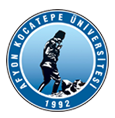| After completing the program, our students will be able to; | |
| P1 | evaluate information by understanding the nature of it and to use the methods of generating scientific knowledge. |
| P2 | use the contemporary language teaching methods and approaches by making the most appropriate pedagogical decisions for the characteristics of students (students’ needs, ages, intelligence types, learning styles, and socioeconomic levels). |
| P3 | critically analyze linguistic, literary, cultural and historical issues in the processes of selecting, developing and evaluating course content. |
| P4 | establish interdisciplinary connections and adopt the perspective of a critical researcher, based on knowledge in educational sciences, linguistics, literature, psychology and other fields. |
| P5 | identify specific language-related problems that language learners of different proficiency levels may encounter and offer solutions to these problems. |
| P6 | conduct educational research and apply research methods for language or language teaching, individually or in effective collaboration with other teachers, based on their knowledge of other education systems and their differences. |
| P7 | adapt to different local contexts by providing instruction sensitive to individual, cultural (multicultural) and psychosocial diversity in learning environments. |
| P8 | make use of all primary and secondary language skills in English while communicating effectively in daily and professional life. |
| P9 | understand, use, translate and convey discourses of a wide variety of languages by taking the contextual factors into consideration. |
| P10 | make use of language learning experiences (other than in English) to raise awareness about language learning processes. |
| P11 | engage in lifelong learning and continuing professional development processes necessary for personal and professional development, using reflective thinking and self-assessment. |
| P12 | use relevant instructional technologies in teaching processes based on information literacy and digital literacy. |
| P13 | facilitate creativity, understanding, collaboration and equity in the classroom employing effective classroom management strategies to create a positive classroom environment. |
| P14 | develop a critical, sociolinguistic and multicultural perspective on language and language-related issues arising from the global use of English. |
| P15 | act in accordance with scientific and professional ethical values in the processes of research, teaching and business obligations, by being aware of democracy and human rights. |
| P16 | promote positive attitudes in students towards language learning based on the belief that every student can learn a language effectively. |
| P17 | set an example for students and society in all aspects by considering themselves as a teacher. |
Program Learning Outcomes (PLOs) Aligned with Bologna / TYÇÇ Level 6
| Category | Descriptor (Level 6) | Program Learning Outcomes (PLOs) |
|---|---|---|
| Knowledge | Possesses advanced theoretical and factual knowledge in a field and understands concepts, principles, and relationships between them. | P1. Evaluates information by understanding the nature of it and uses scientific methods of knowledge generation.
P3. Critically analyzes linguistic, literary, cultural, and historical issues for material selection and evaluation. P4. Establishes interdisciplinary connections based on knowledge in linguistics, literature, psychology, and educational sciences. P14. Develops a critical, sociolinguistic, and multicultural perspective on global English. |
| Skills | Uses field-related advanced knowledge and skills to identify, analyze, and solve complex problems.Uses research methods, interprets data, and develops solutions. | P2. Uses contemporary language teaching methods through appropriate pedagogical decisions.
P5. Identifies language learning problems at different proficiency levels and offers solutions. P6. Conducts educational research using varied research methods individually or collaboratively. P12. Uses instructional technologies based on information and digital literacy. P13. Employs effective management strategies to create positive learning environments. |
| Competence – Autonomy & Responsibility | Works independently and in teams, assumes responsibility, makes decisions, and develops strategies to solve complex and unpredictable problems. | P7. Designs and adapts instruction sensitive to individual, cultural, and psychosocial diversity.
P8. Communicates effectively using all English language skills in professional contexts. P15. Acts in accordance with scientific and professional ethical values, democracy, and human rights. P17. Sets an example for students and society as a professional teacher. |
| Competence – Learning to Learn | Evaluates knowledge and skills critically, monitors learning, and takes responsibility for ongoing development. | P10. Uses additional language learning experience to raise language awareness.
P11. Engages in lifelong learning and professional development through reflective thinking and self-assessment. P16. Promotes positive student attitudes based on the belief that every student can learn a language. |
| Competence – Communication & Social Competence | Communicates field-related ideas effectively in written and oral form.Participates in social and professional contexts with responsibility. | P8. Uses English effectively in communication across varied contexts.
P9. Understands, translates, and conveys diverse discourses considering context. P7. Adapts instruction to multicultural and socially diverse environments. |
| Competence – Field-specific / Professional Competence | Acts in accordance with ethical, social, cultural, and scientific values when collecting, interpreting, and applying field data. | P4. Demonstrates critical researcher identity across education, linguistics, and psychology.
P12. Applies technology-enhanced teaching and learning processes ethically. P15. Demonstrates professionalism in teaching, research, and institutional responsibilities. P17. Displays exemplary conduct as a teacher and societal role model. |
Last Update: 17.11.2025

